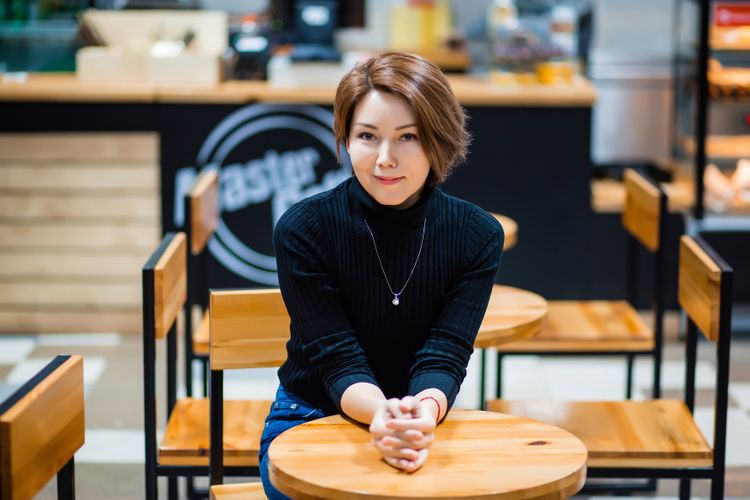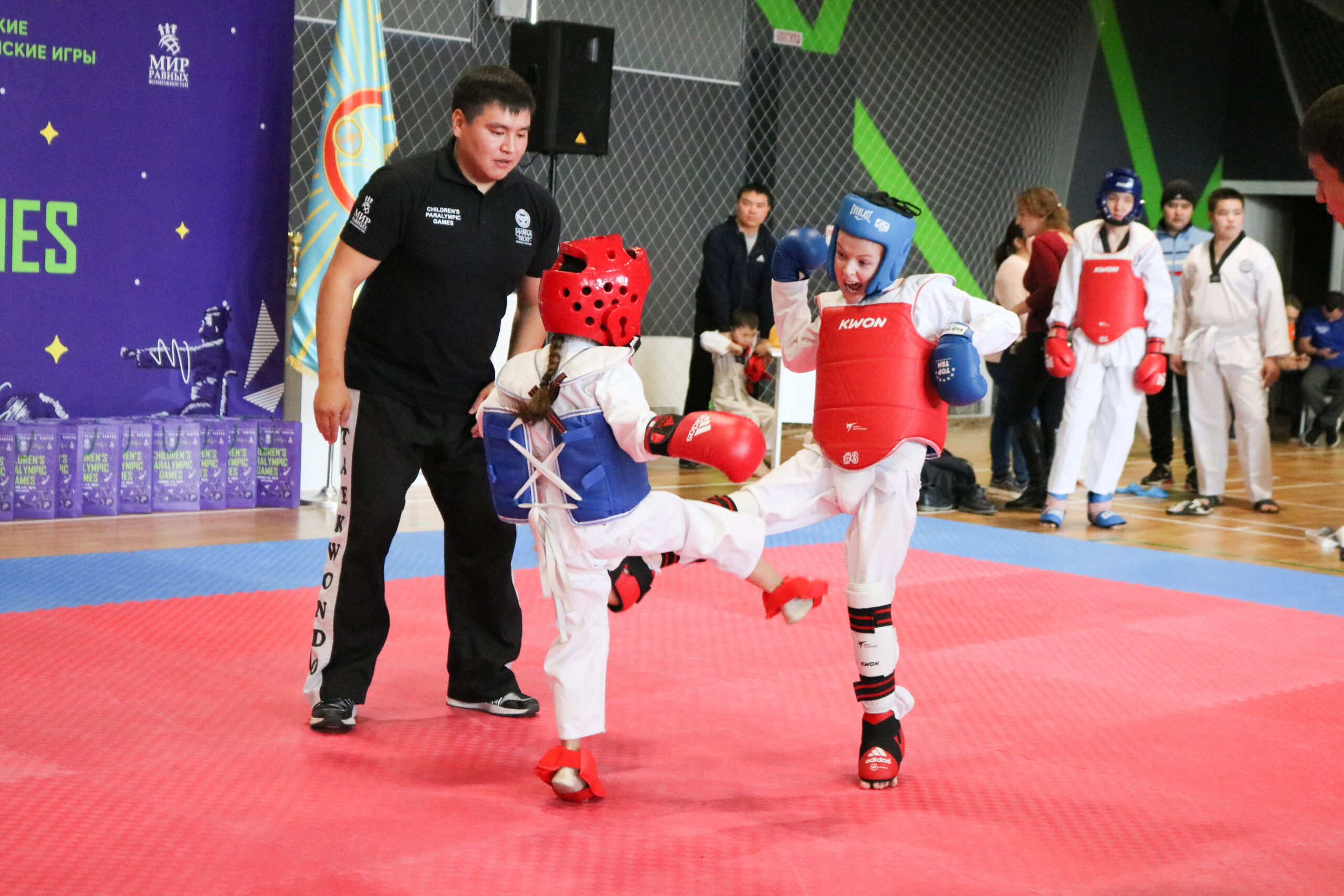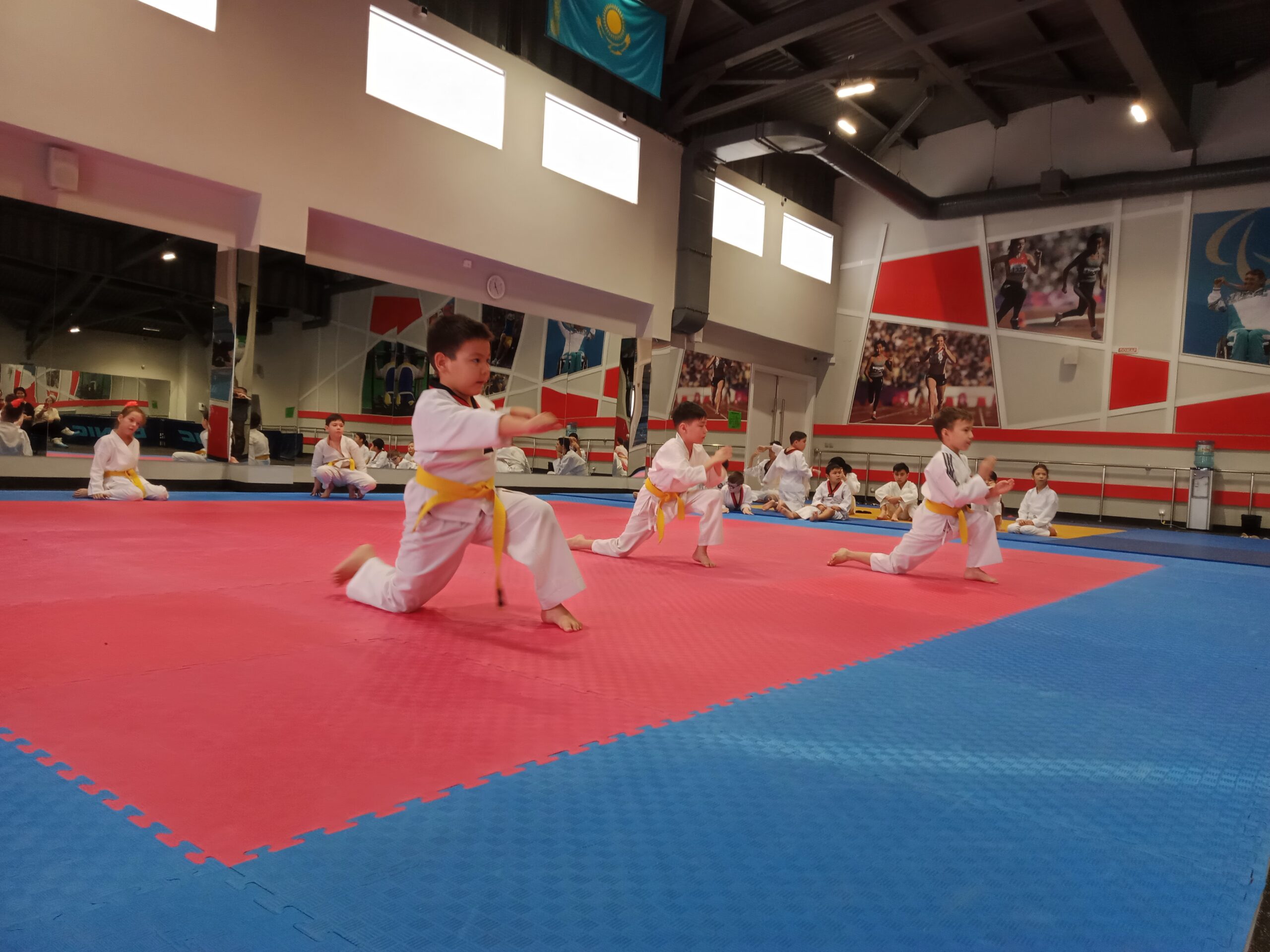22/07/2020

In Nur-Sultan, the project «Salamatty Bolashak» has been operating for 4 years, the implementation of which is carried out by the Public Fund “World of Equal Opportunities”. The project «Salamatty Bolashak» is aimed at the development of adaptive physical education among children with special educational needs. Today in the section there are 150 young para-sportsman registered, 119 of them went online, the rest of the guys are waiting, when the offline training will be resumed.
More about adaptive sports and the work of the public fund tells its leader Nurgul Ulzhekova in an interview with Elorda Aqparat.
- Nurgul, your public association is engaged in the development of adaptive physical education. Tell us about, what is adaptive sport and why did you choose this direction?
- Adaptive sport is a sport for people with special needs. It consists of one of the components of adaptive physical culture, which also includes adaptive physical education, physical rehabilitation, adaptive motor recreation, artistic-musical, extracurricular activities. Each of these species has its own adaptive physical culture.
Adaptive sport is, first of all, competitive activity, in which a person with special needs, having restrictions on the state of health or mental violations, strives to achieve maximum sport technic for the account of their preserved functions.
The mission of our foundation is the maximum assistance in the socialization of «special» children through the activities of adaptive physical culture and adaptive sports.
Regular trainings in adaptive sections positively influence young athletes. They allow children with disabilities to cope with secondary complications of a sedentary lifestyle, facilitate the formation of self-identity, increase self-esteem, and improve communication skills. In addition, the skills acquired during the training process have a positive impact on the life support process itself.
Children grow up, and we, the parents, hope that our «special kids» in the future will be able to find their place in life, will work hard, will get families. It's just that now we have to prepare this solid foundation of personality. Adaptive physical culture and sports help us in this.
- Due to the pandemic sections for children do not work temporarily. How did you approach the solution of this issue? Do your kids continue to train?
- Also, like everyone else, we had to adapt to new conditions, go to remote mode. Initially, there were doubts in the coaches, and in the parents, that training online will be effective. But we all understood that physical activity is extremely necessary for children, first of all, to raise immunity, secondly, not to forget the acquired earlier sports skills.
By asking parents, we found out who is more comfortable with online conferences, who is more comfortable to get videos of home workouts on the record. For the first month and a half, the children got used to it and adapted.
And here an active participation of parents has helped, who tried not only to find time to connect the child to online training, but also to perform exercises together with them, since some of them needed it.
In a word, we as a friendly team of coaches, children and their parents coped! Now training in online mode has become a habit for guys. Children try very hard.
- How many children are engaged in the sections of adaptive sports remotely?
- At the moment, 119 out of 150 participants of the project continued training in the online format. The rest of the guys did not get it because someone left for the summer to the village, where the Internet is weak, someone from the guys did not manage to adapt to this regime, because of the degree of complexity of mental disorders.
- Working with «special» children requires a special approach. Tell us, please, should coaches have a special qualification and how to get it?
- Undoubtedly, the organization of the training process with children with special educational needs requires a coach to know about the nosological groups, their features, indications and contraindications for physical activity, sports, sports, sports, etc.
The training process depends on the physical and mental abilities of the occupants. And this needs a specialist in adaptive physical culture and sports. In developed countries, for example, in the United Kingdom, the United States, only licensed specialists in adaptive physical culture and sports are allowed to work with people with disabilities. There are several levels of training of specialists in physical culture, in which adaptive physical culture represents one of the last levels.
In Kazakhstan, there is no training of specialists in adaptive physical culture and sports, but some universities in the framework of training of specialists in physical culture are included in the educational programs of the discipline «Theory and Methods of AFC».
- What are the results achieved by the Society of Parents of Children with Disabilities «World of Equal Opportunities» for the time of work?
- Starting in 2016, we have increased the number of educators in sections from 10 to 200, participants of the project are now engaged in 7 sports areas instead of one. We were able to expand the network of social partners of the project, expand the geography of the project in the capital from one location to eight.
One of our constant partners became the Social Projects Development Foundation «Samruk-Kazyna Trust», with which we are already working for a long time. Thanks to the Foundation, we received the opportunity to grow and grow, without stopping to reach.
One of the most important results for us is the development of educational and methodological manuals on adaptive physical culture, physical culture and sports programs for children with special educational needs. There were developed physical education and sports programs for adaptive swimming for children with disability of the musculoskeletal system and for children with impaired vision, bochcha program, golbol program, adaptive karate and inclusive choreography.
For these programs, the trainers organized the training process, using the recommended sets of exercises, scheduled for each month of the school year, tests of physical fitness and functional tests.
Besides, we organized the first International scientific-practical conference on adaptive physical culture and sports in Kazakhstan.
- Are there any statistics showing the dynamics of development of children attending the sections of adaptive physical culture?
- In purpose of controlling the well-being of participants, tolerance of physical loads and assessment of physical training of project participants together with the coach, parents, the doctor of sports medicine and the doctor-rehabilitologist within the framework of social sciences.
These data allow us to plan more accurately and adjust the educational process, thus contributing to the improvement of its quality and efficiency.
The tests conducted for strength, endurance, flexibility, agility and reaction indicate an increase in these indicators in the children of the project compared to last year by at least 10-25%.
As a result of the study, it was revealed that endurance and flexibility increased to a greater extent than the other above-mentioned qualities of physical preparedness.
The results of a questionnaire survey of parents at the end of the year indicate that the children have improved social skills, increased independence and self-confidence.
- What inspires you the most in your work?
- First of all children! Their victories in competitions, their happy smiles when they deservedly receive their certificates and medals. Also friendship between the guys and the way they open up emotionally is also inspiring. And of course, feedback of the parents. I really like that we are one big team, coaches, children and parents.


Leave a Reply